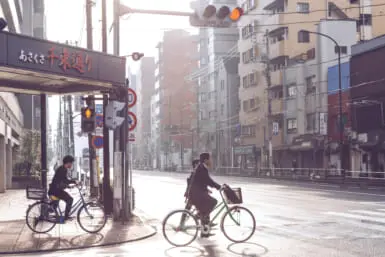Japanese workers are known to get less sleep than those in any other country do—but instead of encouraging them to come to work a little later or go home sooner, companies are allowing sleepyheads to catch a few winks on the job.
We’ve all been in those meetings at work where the more you try keep your eyes open, the harder it gets to stay awake and pay attention. Our work ethic tells us to get a grip and wake up, but then again, at some companies it might be all right to take it easy, listen to your body, and have a snooze.
Inemuri (居眠り) means “sleeping while present.” Firms in Japan have been encouraging employees to power nap while they are at work, in order to improve performance and enable them to work more hours. The napping allowance depends on the company, and some specify that their 30-minute nap be taken any time between 1pm and 4pm (and unfortunately, probably not during that meeting!). Some workers do see the benefit: for example, an employee at Yomiuri Shimbun says that he has to double-check his work when he is sleepy to make sure there are no mistakes, which takes longer and is inefficient, compared to taking some time out to recharge.
Even with your boss’s approval, some may be reluctant to sleep on their desks knowing that everyone can see them drooling and occasionally twitching. Enter the business opportunity: with widespread daytime sleep services across Japan, napping has become more than a poor attempt of keeping your head from falling left to right. Tokyo’s Ohirune Café Corne, for example, has eight beds for working women who want to sleep in comfort, with scents of essential oils to make it a special afternoon experience. It costs ¥150 for every 10 minutes, and most clients stay for almost an hour on average.
This move to sleep during office hours comes after the government issued new guidelines on the importance of sleep—we will see if this is the best solution to keep employees on their toes.
– Mona Neuhauss
Main image: Sebra / Shutterstock









